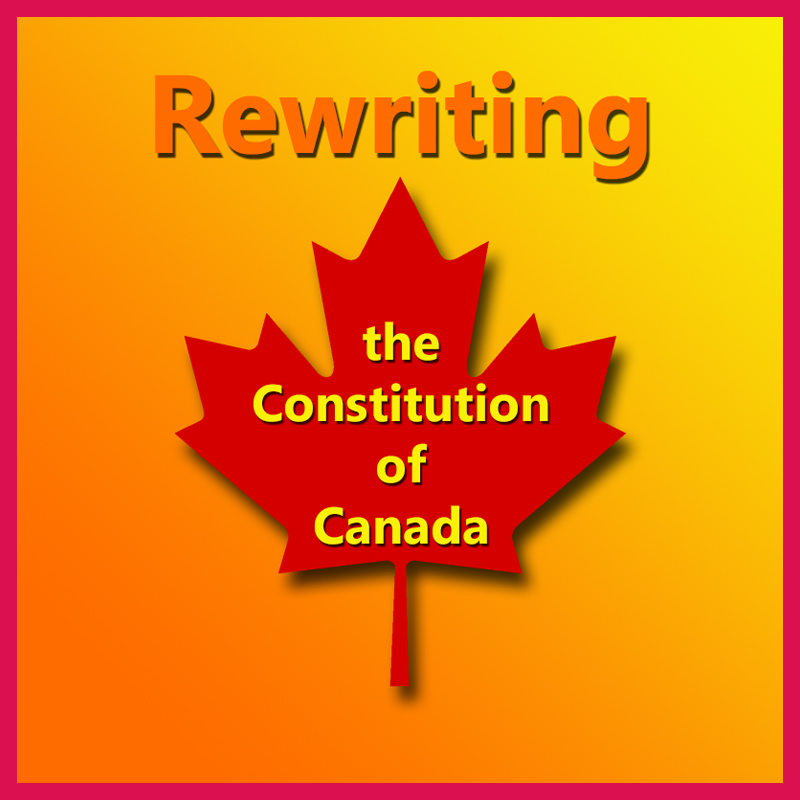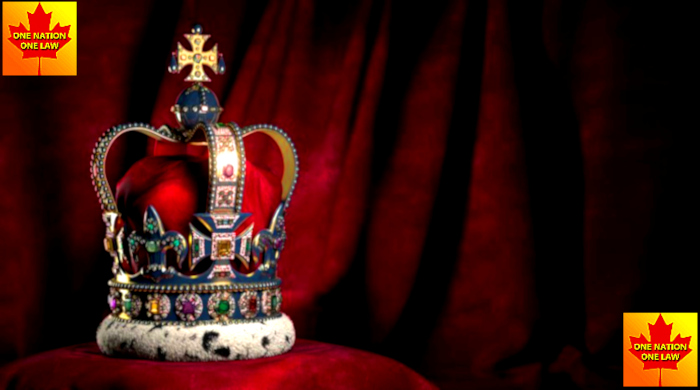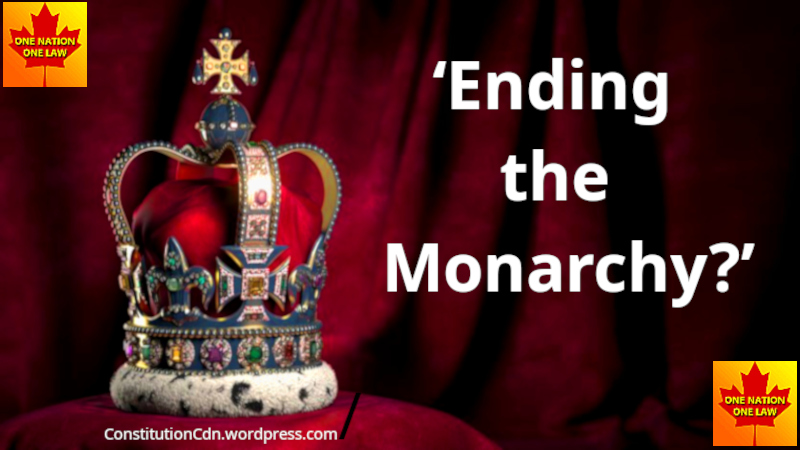“If a referendum was held about the future of the monarchy in Canada, 36% of Canadians would vote to keep the monarchy while 64% would vote to eliminate it. Support for eliminating the monarchy in Canada is consistent across demographic groups and fairly consistent across the country.”
“A few days before King Charles III’s coronation, a new poll from Abacus Data finds that 2 in 3 Canadians would vote to eliminate the monarchy in Canada as impressions of King Charles III worsen from the last survey in 2020.
…
“Most Canadians don’t think Canada should continue to have a monarch as its head of state. When asked whether Canada should continue to have a monarch as its head of state, 12% definitely feel it should while more than double the number feel it definitely shouldn’t. In total, 30% feel it should continue to have a monarch or lean towards feeling that way while 52% believe Canada shouldn’t or lean in that direction. 18% say they don’t care either way.
“Since 2020, those who definitely think Canada should have a monarch as head of state is down 6 points while those feeling it shouldn’t have risen 7 points.
‘2 in 3 would vote to eliminate the monarchy in Canada’
“If a referendum was held about the future of the monarchy in Canada, 36% of Canadians would vote to keep the monarchy while 64% would vote to eliminate it. Those favouring eliminating the monarchy in Canada have increased by 8 points since 2020.
“Support for eliminating the monarchy in Canada is consistent across demographic groups and fairly consistent across the country. A majority in every region would vote to eliminate it. In Quebec, 82% would vote to eliminate the monarchy in Canada.
“Politically, support for keeping the monarchy is highest among ‘Liberal’ Party supporters (46%) and lowest among BQ supporters (6%). 39% of Conservative supporters and 29% of NDP supporters would vote to keep the monarchy in Canada.
“From April 28 to May 3, Abacus Data interviewed 1,750 Canadian adults and asked some questions about the monarchy and the King’s coronation on its National Omnibus survey…”
–‘2 in 3 Canadians would vote to eliminate the monarchy in Canada’,
David Coletto, Abacus Data, May 4, 2023
https://abacusdata.ca/monarchy-in-canada/
FEATURE Image: British Crown (Bet Noire-iStock-Getty Images Plus)
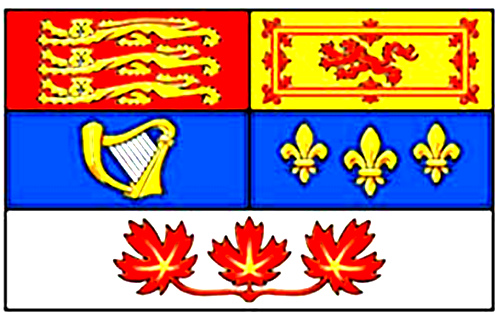
“The pessimists have long had the upper hand in the ongoing debate over whether to cut the umbilical cord that has linked Canada to the British Royal Family since the birth of this country. The obstacles between the start and end points have seemed too numerous or too insurmountable to even try.
“Not so. Canadian democracy has all the necessary tools to make this happen in a relatively short time, in an orderly and respectful manner, without risk to the resilience of our institutions. All that is needed is a substantial amount of political will.
“Let us first list the obstacles and then see how they can be overcome.
“The existence of the royal bond is enshrined in the Constitution, so that must be changed. To do this, a constitutional amendment must be approved in each of the 10 provinces and by both the House of Commons and the Senate. To make matters worse, modern history tells us that if anyone tries to amend the Constitution for one reason, all of the many players will scramble to add their own proposals in other areas, leading inevitably to failure.
“Moreover, since the ‘Meech Lake Accord’ was negotiated behind closed doors in 1990, several provinces have passed legislation requiring provincial referenda to ratify significant changes to the Constitution.
“In addition, since the 1995 Quebec referendum, each region of the country – Quebec, Ontario, the Atlantic provinces and the Western provinces – has been given by Parliament a veto over any change to the Constitution.
https://laws-lois.justice.gc.ca/eng/acts/c-36.7/FullText.html
“To make things more interesting, within the Prairies and Atlantic provinces, premiers have made a commitment to exercise that veto if any single province in the region opposes the change.
https://www.queensu.ca/iigr/sites/iirwww/files/uploaded_files/Chronology1995-1996.pdf
“On top of all that, the Australian experience teaches us that even if a majority of citizens want to break with the monarchy, they do not all agree on what to replace it with, which can lead to a default victory for the status quo.
“One must therefore devise a road map that navigates each of these obstacles in a predictable and transparent way. Above all, the entire process must be based on the greatest possible legitimacy: the popular vote.
‘Where do Canadians stand?’
“Canadians may be divided on whether to cast off the royal moorings, but they have a clear idea of the method to use to decide the issue: a national referendum. Last September, 58 % of respondents told IPSOS they wanted Justin Trudeau to organize such a consultation.
https://www.ipsos.com/en-ca/news-polls/canadians-conflicted-on-future-role-of-monarchy
“Obviously, the wish is stronger in Quebec (73%), but one finds a majority everywhere except in the Prairies (where the figure is between 45 and 49%)
“If this referendum were held now, what would be the result? At the time of the IPSOS poll, 54% of respondents would have said goodbye to the monarchs. But Quebecers, again, were pulling this average up, with 79% in favour. Only in Saskatchewan and Manitoba (54%) was there a majority to keeping the royal connection.
…
“The best and most recent data come from an Angus Reid Institute poll released in April.
https://angusreid.org/canada-constitutional-monarchy-king-charles-coronation/
“Majorities everywhere oppose “recognizing Charles as King of Canada”, ranging from 53% opposed in Ontario to 59% or more opposed everywhere else. As for swearing an oath to King Charles “at some official ceremonies”, the lowest number is 57% against.
“Angus Reid did not ask a direct ‘yes’ or ‘no’ question on severing the royal ties entirely but it found pluralities wanting to give it a try despite the constitutional difficulty, with fewer than one-third of respondents outside Quebec – 34% being the highest proportion in Ontario – wishing for the country to “remain a constitutional monarchy for generations to come”.
“A majority thus seems to be at hand everywhere in the country to make the shift, although there is some risk of failure…
“It would start by deftly defining the needed constitutional amendment. It would, in my view, state that the office of Canada’s head of state should henceforth be held, not by the head of the British Royal Family, but by the Governor General, until such time as a constitutional conference decides otherwise.
“The formulation clearly distinguishes the two key debates: dumping the monarchy now and deciding what to replace it with later. For the time being, it would propose a minimalist change: the Governor General would be responsible for carrying out all the functions he or she has performed to date – no longer in the name of a King in London, but in the name of the Canadian government that has appointed him or her.
“Everyone would understand that unless otherwise decided, this configuration would endure. The amendment must also provide that if adopted by the 10 provinces and Parliament, a constitutional conference will be held within three years with only one item on the agenda: the formula for replacing the Governor General as head of state. Thus, the text of the amendment will prohibit any other subject from being discussed at this conference.
“Second, in keeping with the idea of giving this amendment the greatest possible legitimacy through the popular vote, a national referendum should be held before the votes on the amendment take place in provincial legislatures and Parliament. If the public indicates it wants action, elected officials would, of course, be politically bound to accept their voters’ verdict.
“Everything then hinges on the wording of the two questions to be asked in this Canada-wide referendum organized by Ottawa, with or without the provinces’ approval.
“The first should revolve around this:
‘Do you want Canada to appoint a Canadian head of state, rather than keeping the head of the British Royal Family in that position?’
Yes/No.
“This question alone exposes us to getting negative answers from one or two provinces. It is obviously politically impossible to use the Canadian average to impose the decision because that would give fiercely anti-monarchist Quebec far too strong a voice, which would irrevocably pollute the whole referendum debate {?}.
“Instead, I propose a second “I’m getting on board” question that mimics an existing constitutional amendment method – the 7/50 formula. It would go like this:
‘If a majority of Canadians answer ‘yes’ to the previous question in seven provinces representing 50% of the country’s population, do you wish the legislature of your province to adopt the proposed constitutional amendment to provide Canada with a Canadian head of state?‘
Yes/No.
“This mechanism allows the reform to pass, even if three small provinces vote ‘no’. The provincial parliaments are thus required to obey the vote of their constituents, and the royal link is severed.
“The next step is to hold consultations and debates towards the promised constitutional conference. This will be done knowing that if there is no consensus on substantial regime change, which is likely, the resident of Rideau Hall, appointed by the representatives of the Canadian people rather than the resident of Buckingham Palace, will hold the symbolic sceptre of Canadian sovereignty.
“It could be that the most important matter for debate in this conference would become the appointment procedure for the Governor General and possibly a change in the name – governor being rather backward looking. ‘Canadian-in-chief’ could be an option {Let’s hope not}.”
–‘Here’s how to abolish the monarchy in Canada (and say goodbye to King Charles)’,
Jean-François Lisée, Policy Options, May 5, 2023
https://policyoptions.irpp.org/magazines/may-2023/abolish-monarchy-goodbye-charles/
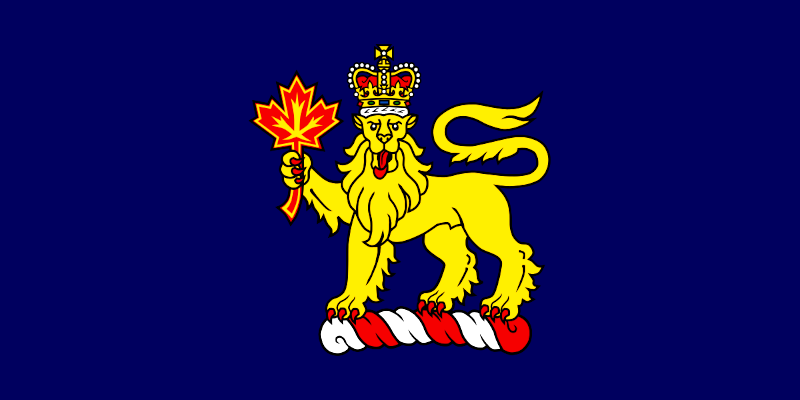
From 2021:
“After the ignominious departure of scandal-ridden Julie Payette as Governor General, Canadians had already begun to ask questions about the country’s antiquated and colonial constitutional setup…
“According to a February {2021} poll by the Angus Reid Institute, support for the position of Monarch’s representative is in decline, with 43% of those polled in favour of eliminating the position altogether. Fully 55% of those polled now believe that the Royal Family is no longer relevant for Canadians. A second poll late last month by Research Co. finds that 45% of Canadians would prefer an elected head of state, the highest ever in five iterations of the poll.
“It’s extraordinary in this day and age that the Prime Minister appoints the Governor General, or to be more precise, “recommends” a choice to the Monarch which he will rubber stamp — in other words, the head of government selects their constitutional superior. More generally, Canada has had remarkably little constitutional evolution since its creation as a British Dominion in 1867. It took until 1982, with Prime Minister Pierre Trudeau’s repatriation of the constitution, for the country to be fully sovereign in a legal sense.
“Apart from the anomaly of an unelected head of state, Canada is almost unique among major western democracies in having an unelected upper house of Parliament – the Senate, whose members again are appointed by the Prime Minister after token consultations. For a country with such a progressive self-image, Canada’s constitutional realities are about as reactionary as it gets.
“If any institution in Canada is ripe for cancellation, it’s the Crown, and this should matter to all Canadians, irrespective of their origin. It might have made sense in 1867, when anglophone Canadians had a strong loyalty to Britain, to keep the Monarch as head of state but it makes no sense today that he should rule Canadians, even nominally.
“It’s especially anomalous in 2021 that an institution such as the monarchy, which is all but synonymous with colonialism and imperialism, is still so central to a Canada that is increasingly being built by immigrants from former British colonies who see the British crown more as an object of oppression than veneration.
“There’s a peculiar cognitive dissonance in Canada, where ‘progressive’ {‘regressive’} social issues whether regarding Race, gender, or ‘indigenous’ people are increasingly important to the current narratives, but with relatively little serious discussion of the continuing centrality of the British monarchy to political life in Canada. That is the elephant in the room.
“If Canada were to “cancel” the British monarch, it leaves open the question of how to select a head of state, whether he or she is called the Governor General, President or something else. India, the former jewel in the crown of the British empire, opted for an ingenious solution when they created a constitution in 1950, three years after independence. The country’s ceremonial head of state is a President, chosen by an electoral college whose members are constituted from both houses of Parliament and all of the state legislatures. Similarly, members of the upper house of the Indian parliament are chosen by an electoral college comprising state legislatures. Thus, both the head of state and the upper house are indirectly elected and therefore enjoy a democratic legitimacy that is entirely absent in Canada.
“An elected Governor General and an elected Senate enjoying democratic legitimacy would increase the checks and balances on the Prime Minister, who in Canada’s current set up has more power than the head of government of any major western democracy. Even the British Prime Minister is forced to deal with whomever happens to live at Buckingham Palace, whereas the Canadian Prime Minister conveniently appoints the individual who sits at Rideau Hall. In the event of a constitutional crisis, an unelected Governor General who is seen as a creature of the Prime Minister — politically although not legally — will find it difficult to overrule a sitting Prime Minister.
“Change isn’t going to be easy. Removing the Monarch as head of state will require unanimous approval by all ten provincial legislatures and both houses of Parliament {Trudeau the Elder set this up so that his Constitutional changes couldn’t be overturned…}. But, the crisis in the Royal Family, coming hard on the heels of the Payette debacle, presents Prime Minister Trudeau the perfect opportunity to have a serious conversation with Canadians about the fundamental necessity for deep constitutional reform, so that Canada’s constitution can actually represent the values and aspirations of a diverse citizenry and cease to be a colonial artefact.”
{Right idea, wrong person…}
–‘Abolish the monarchy in Canada’,
Rupa Subramanya, National Post, Mar. 09, 2021
https://nationalpost.com/opinion/rupa-subramanya-abolish-the-monarchy-in-canada
COMMENTS: “Kicking out the monarchy is just one of many things that needs to be done to reform this failed Dominion. There are too many old stock loyalists holding up “tradition” as the main reason to stand in the way of real progress. Canada will continue to be stagnant because people here are apathetic and just can’t picture a better system. Hopefully future generations more diverse in thought and culture can change these problems.
“I agree its long overdue to abolish the monarchy in this country as I’ve long believed the hallmark of a truly independent, mature country is being able to have its own homegrown head-of-state and to forge its own unique identity that while respectful of the past is not tied to the vestiges of a time long since passed that has very little relevance in the 21st century.
“The fundamental problem however is that Canada is a very immature country when it comes to constitutional matters and on two occasions in the past thirty years has been unable to find a way to amend the document with any real consensus. Once you open the door on one set of amendments you get a clamouring from every other special interest to address their problems and there is no way a constitutional amending process can work in that manner. A nation that cannot debate and alter its founding document is not really a nation in my opinion and it shows just how ungovernable the place has become where there is very little sense of identity beyond medicare-for-all and being anything other than American.
“As for Trudeau initiating this process, let’s get real? This is a man who can barely muster a consensus among the provinces on the most basic of public policy issues and you expect him to lead the charge for a complete overhaul of the national identity? There is in fact no political leader I see out there that could do this and that’s another sad reality of a failing nation.”
^^^^^^^^^^^
“The monarchy is a ridiculous institution. It needs to go. But quite frankly, Canada depresses me so much now, that any expectation of a cleaner, more Canadian, streamlined country — as was at one time felt with Expo 67, and the new flag – well, it ain’t gonna happen.”
^^^^^^^^^^^
“To me, the discussion should me more focused on the point that the PMO has too much power in Canada. The traditional is of no real force or effect, meaning it has no functional meaning in day to day life. I can either take it or leave it.
“I would rather see free voting in the House of Commons where an individual M.P. can vote their conscience without fear of being removed from caucus, instead of being whipped.”
{‘The Undemocratic World of Canadian Members of Parliament‘:
“In the crazy, Leninist world of Canada’s leader-centric parliamentary politics, maybe the only proper role for any MP – other than the one who has been selected as leader – is to be silent and obedient — like a Victorian child, to be seen and not heard, except when they are reading a speech prepared for them by a staffer from the PMO or the Leaders’ Office…”
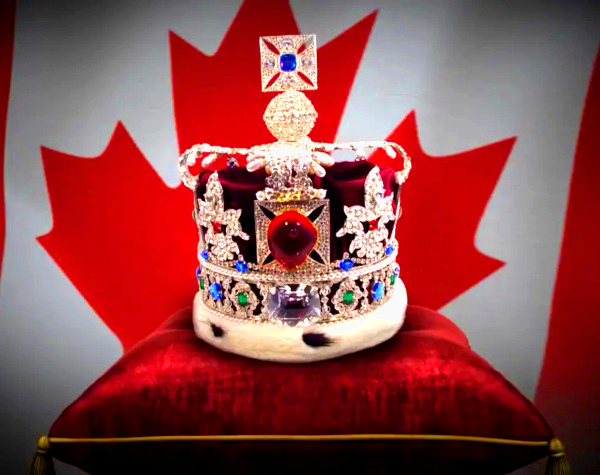
“From a generational perspective, the people of my era, we don’t feel the same connection with the monarchy that others do“,
said Andrea Anderson-Mason, the ‘Progressive Conservative’ MLA for Fundy-The Isles-Saint John West. But the former attorney general recognizes that any move to sever the connection “would be a very complicated process“.
“Those complications come in the following three categories.
1. ‘How to do it’
“Most polls showing support for ditching the monarchy didn’t ask Canadians how many years of constitutional wrangling they’d be willing to tolerate to make the change.
“The role of the monarch — its powers, status and constitutional role — is enshrined in the Constitution, and the federal government and all 10 provinces would have to agree on changing it.
“The last time Canada tried to amend its Constitution, between 1987 and 1992, the federal and provincial governments were consumed with years of divisive debates over Quebec’s role in the country, Western Canadian grievances and other issues.
“Since then, politicians have shied away from trying again.
“There are some constitutional scholars who say the Canadian Constitution is basically unamendable“,
said University of Moncton law professor Érik Labelle Eastaugh.
{A Constitution that is impossible to amend is a Constitution with no future.
It will eventually force civil war…}
…
2. ‘What would replace it?’
“In an interview with CBC’s ‘The National’ this week, King Charles’s sister, Princess Anne, said that
“the monarchy provides, with the Constitution, a degree of long-term stability that is actually quite hard to come by any other way.” {?}
“Even if there were a consensus on ditching it, agreement on what would replace it — how to preserve that stability — would be another challenge altogether.
…
“One option would be a ceremonial head of state with limited powers, modelled on the role of the governor general and the lieutenant-governors — to summon and dissolve parliaments, swear-in governments and sign bills into law. In many European countries, parliaments choose ceremonial presidents and generally opt for someone who is widely respected.
“Another option would be to directly elect that person — but it might then be difficult to limit their conventional roles if they gain democratic legitimacy.
…
3. ‘How would the new head of state take over the Crown’s obligations?’
“The Crown’s neutrality and impartiality have occasionally been critical to New Brunswick’s political stability. In 2018, the New Brunswick election produced no clear majority. ‘Liberal’ {Party} Premier Brian Gallant won fewer seats than the ‘Progressive Conservatives’ and said he would try to win the support of smaller Parties in the legislature to stay in power.
“PC Leader Blaine Higgs questioned whether Gallant could, or should, do that. The question was settled by Jocelyne Roy-Vienneau, the lieutenant-governor at the time.
“As the Crown’s representative in New Brunswick, she followed centuries of convention by allowing Gallant to try to win a confidence vote — and then inviting Higgs to form a government when Gallant failed.
{A court – or a President – would presumably have followed the same path…}
…
“The Crown has other roles in the system. In 2004, the Supreme Court of Canada declared that “the honour of the Crown is always at stake” in the government’s dealings with ‘Indigenous’ {sic} peoples.
“It’s the Crown, not governments, who are parties to legally recognized treaties. So what happens to those obligations if the Crown is gone?
{The ‘Crown’ is now the Canadian federal and provincial governments, depending on jurisdiction. This has been the situation since 1982 – as the Supreme Court has made clear…}
“Labelle Eastaugh said that, in one sense, the Crown “is just the corporate personality of the state as a whole“, and the state would continue to exist. {Exactly…}
“There’s no reason why you wouldn’t be able to simply continue or maintain the various obligations and duties that are held to apply to that corporate personality.”
“But some kind of carefully-worded transitional declaration might be needed to make it explicit that Crown obligations are passing to the new entity…”
–‘Most Canadians would get rid of the monarchy. That’s easier said than done’,
Jacques Poitras, CBC News, May 05, 2023
https://www.cbc.ca/news/canada/new-brunswick/eliminating-the-monarchy-canada-1.6832121

From 2020:
“Despite their love for Queen Elizabeth II, a poll {2020} finds that most Canadians don’t think the monarchy is relevant to their lives anymore — some would even be willing to have Canada leave the monarchy altogether.
“The new poll by the ‘Angus Reid Institute’ — released shortly after Prince Harry and his wife Meghan Markle announced they were “stepping back” from royal duties and planning to live part-time in Canada — indicates there could be some major changes to how Canadians treat the monarchy once the Queen is no longer on the throne.
“According to the poll, 66% of Canadian respondents said the British monarchy is losing, or has lost, relevance in their lives, while 45% say Canada
“should not continue as a constitutional monarchy for generations and generations to come”.
…
“The dwindling feelings towards the monarchy can be linked to how Canadians perceive members of the royal family. While about 67% of Canadians still view the Queen favourably, Prince Charles, the next in line to the throne, didn’t do as well. Only 38% of Canadians view Charles favourably, and a 2016 poll had Canadians describe him as “boring” and “unimportant”… The Queen’s only relatives that were viewed more positively than her were her grandchildren, Harry and William.
“Prince Andrew, who has had to step back from public duties after allegations he had sex with an underage girl through his connections with sex offender Jeffrey Epstein, was only viewed favourably by 10% of Canadians.
“While prominent figures such as B.C. Premier John Horgan said they were “giddy” about Harry and Meghan’s potential move to Canada, the poll finds that most Canadians aren’t so supportive… About 50% of Canadian respondents simply said they wouldn’t care if the Duke and Duchess of Sussex moved to their home turf. What they did have strong feeling about, however, was who would foot the bill if they did come. When asked if Canadians should help pay for the royals’ security costs while here, 73% responded ‘No’…”
–‘Most Canadians think the royals aren’t relevant anymore, some willing to leave monarchy, poll finds’,
Jacob Dubé, National Post, January 17, 2020
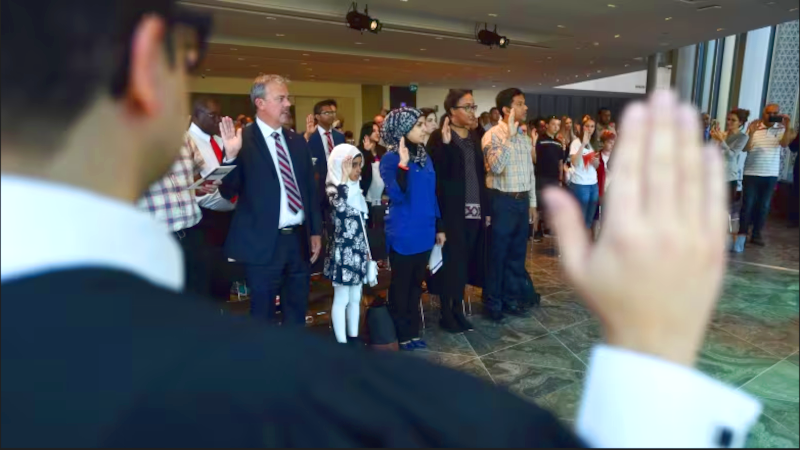
“To become a citizen of Canada, you must take the following oath:
“I swear (or affirm) that I will be faithful and bear true allegiance to Her Majesty Queen Elizabeth the Second, Queen of Canada, her heirs and successors, and that I will faithfully observe the laws of Canada and fulfil my duties as a Canadian citizen”.
“I’ve been living in Montreal for a year. I love it. I’m impressed by the grassroots social movements. The arts scene mixes world-class talent with community feeling and flavour. I can’t believe how politically engaged my students are. And the interplay of ‘First Nations’ {sic, ‘Aboriginals’}, Francophone, Anglophone and new immigrant cultures makes this city extraordinarily complex and exciting.
“I want to be a citizen of Canada. I want to contribute to Québécois and Canadian political life. But I don’t want to swear an oath of allegiance to the Queen.
“…Hereditary power is anathema to my political conscience; I’m baffled by otherwise-egalitarian people who are okay with aristocrats inheriting the position of head of state. As an Irish person, I’m aware of the historical oppression of my people and culture by British colonialism and while I’m grateful that Queen Elizabeth II has in recent years made efforts to honour the Republic, I have no desire to proclaim myself her Subject.
“Unsurprisingly, I’m not the only immigrant to Canada to feel this way. Michael McAteer, Simone Topey and Dror Bar-Natan have been fighting a legal battle to obtain citizenship without the oath. McAteer and Bar-Natan have political objections like mine, and Topey, a Rastafarian, has religious objections. On Wednesday, the Ontario Court of Appeal threw out their case, ruling that the oath did not violate freedom of conscience, religion or expression, and that even though Canadian-born citizens never have to swear it {!?! That should be changed…Perhaps when they turn 18?}, it is not discriminatory to require new citizens to do so.
“There goes my hope for becoming Canadian without becoming a monarchist. So, do I say the words and get the goodies or do I hold fast to my principles? On the one hand, I don’t have to uphold the oath – no one is going to come knocking to ensure I support the Queen and her heirs in my life as a Canadian citizen. On the other, I believe words and symbols are powerful, that the way we use them shapes the world and our identities. Taking the oath makes me the kind of person who’s willing to condone hereditary power for personal reward.
“The court of appeal ruled that new citizens were not “literally” swearing allegiance to the Queen but “symbolically” to Canada’s “form of government and the unwritten constitutional principle of democracy”.
“I find this unconvincing. As a symbol, the Queen can be read in many ways, even within the limits of the Canadian political context (just ask ‘First Nations’ communities). So if the goal is to swear allegiance to government and democracy, then why not choose a symbol that represents these things less problematically? The flag, perhaps? Or, why not offer a literal oath in lieu of a symbolic one? If the answer to this is that the Queen is an integral and indispensable part of Canada’s form of government, then the oath is clearly not symbolic at all, but literal.
“The lawyer for the government, Kristina Dragaitis, told the court that in terms of Canadian government, the Queen symbolised the rule of law and the right to free speech. This is ironic given that in September, when the case was thrown out of the superior court, the judge conceded that the oath infringed on the right to free expression, but ruled it did so only minimally. Justice Edward Morgan also advised against taking the oath literally, saying it symbolised allegiance to an “equality-protecting Canadian institution”. I’m not sure I’ve ever heard a greater contradiction in terms than the suggestion that hereditary power symbolises equality.
“Essentially, all these voices are arguing that, in swearing allegiance to the Queen, new Canadian citizens are not, in fact, swearing allegiance to the Queen. By this logic, could someone please explain why I need to swear allegiance to the Queen?
“I would promise happily to uphold Canada’s form of government, democratic principles, rule of law and traditions of free speech and egalitarianism.
“An editorial from the ‘Globe and Mail’ – one of Canada’s largest national newspapers – on the subject does less skirting around ideology. It says:
“The Crown is a powerful and historic symbol. Far from diminishing Canadian citizenship, it enhances Canada”.
“And here we have the real rationale laid bare:
monarchy is good.
“If you don’t agree, you don’t get in. I don’t agree. I guess I don’t get in.”
‘I want to be Canadian – but why should I have to swear allegiance to the Queen?’,
Emer OToole, The Guardian (U.K.), 14 Aug. 2014
^^^^^^^^^^^^^^^^^^
When will this foolishness ever end?
The Monarchy were in-bred dictators who killed their opponents and acquired their land and fortune through theft.
Do Canadians not know any history?
“An Alberta judge has dismissed an Edmonton law student’s challenge to the legal profession’s mandatory ‘Oath of Allegiance’ to the monarch. Prabjot Singh Wirring had argued the portion of the oath mandated by the ‘Legal Profession Act’ that includes pledging allegiance to the sovereign violates his Charter rights to religious freedom and equality.
“Wirring, who is an Amritkhari Sikh, said he is only allowed to pledge allegiance to a divine being in the Sikh tradition and not Queen Elizabeth, who was the reigning monarch at the time his suit was filed. He said the Oath of Allegiance to the queen was incompatible with his beliefs and filed a statement of claim last year against the Law Society of Alberta and the Alberta government.
“Wirring obtained a law degree from Dalhousie University and completed his articles. In order to be admitted to the Law Society and practise law in Alberta, the ‘Legal Profession Act’ requires an applicant to swear various oaths in open court before a judge.
“No concerns were raised with respect to the other oaths.
“Given Mr. Wirring’s stated willingness to swear the other oaths, which reference abstract concepts like the sovereign’s interest, the public interest, and the rule of law, it is evident that he is not religiously prohibited from swearing oaths to ‘literally anything’,”
Court of King’s Bench Justice Barbara Johnston wrote in her ruling posted Monday.
“Wirring argued the Oath of Allegiance shouldn’t be interpreted as anything but an oath to the Queen in a literal sense.
“Johnston disagreed.
“I have found that the Oath of Allegiance is properly characterized as an oath to uphold and maintain the rule of law and the Canadian constitutional system”,
she said.
{Then THAT’S what the Oath should say!}
“Any reference to the queen in the Oath of Allegiance is as a symbol of these values, and not to the queen as a political or religious entity.”
{Nothing but a nonsense rationalization. There is no need for ‘the Crown’ any longer and perpetuating it simply makes Canada look foolish, retrograde…and ignorant of history.}
–‘Student must swear Oath of Allegiance to monarchy to practice law, Alberta court rules’,
Canadian Press, Oct. 19, 2023
^^^^^^^^^^^^^^^^^^
“I am writing to implore the citizens of Canada to take a stance for progress and equality and advocate that governments pursue the abolition of the monarchy in Canada and our provinces.
“It is time for our nation to match the strides made by Quebec, where a vote has already taken place to remove/abolish the King’s representative (the lieutenant governor) — a decision that Ottawa respected without challenge. It is aligned with the will of the people.
“The monarchy, while steeped in tradition, no longer serves a practical purpose in our modern democratic society.
“It perpetuates an outdated system that reinforces a symbol of inherited privilege rather than meritocracy. Abolishing the monarchy would mark a significant step toward strengthening our commitment to equal representation and democratic ideals.
“Our representatives need to hear the collective voices of the people, resolute in their demand for change. We can remind them of Quebec’s decision and emphasize that it reflects the will of their constituents.
“With the abolition of the monarchy, we can redirect our attention to enhancing health care, education, social programs, infrastructure and addressing pressing environmental challenges.
“Our country is celebrated for its diversity, inclusivity and commitment to equality. It is time to align our system of governance with these values and forge a path towards a more representative and inclusive Canada.
“Let us remind out elected representatives of the power we possess as individuals to shape our nation’s destiny. Together, we can create a Canada that truly stands as a beacon of democracy, fairness and equality for all.”
–‘Canadians should push governments to end the monarchy rule’,
John Bourassa, Estevan, Regina Leader-Post, Jan. 13, 2024
